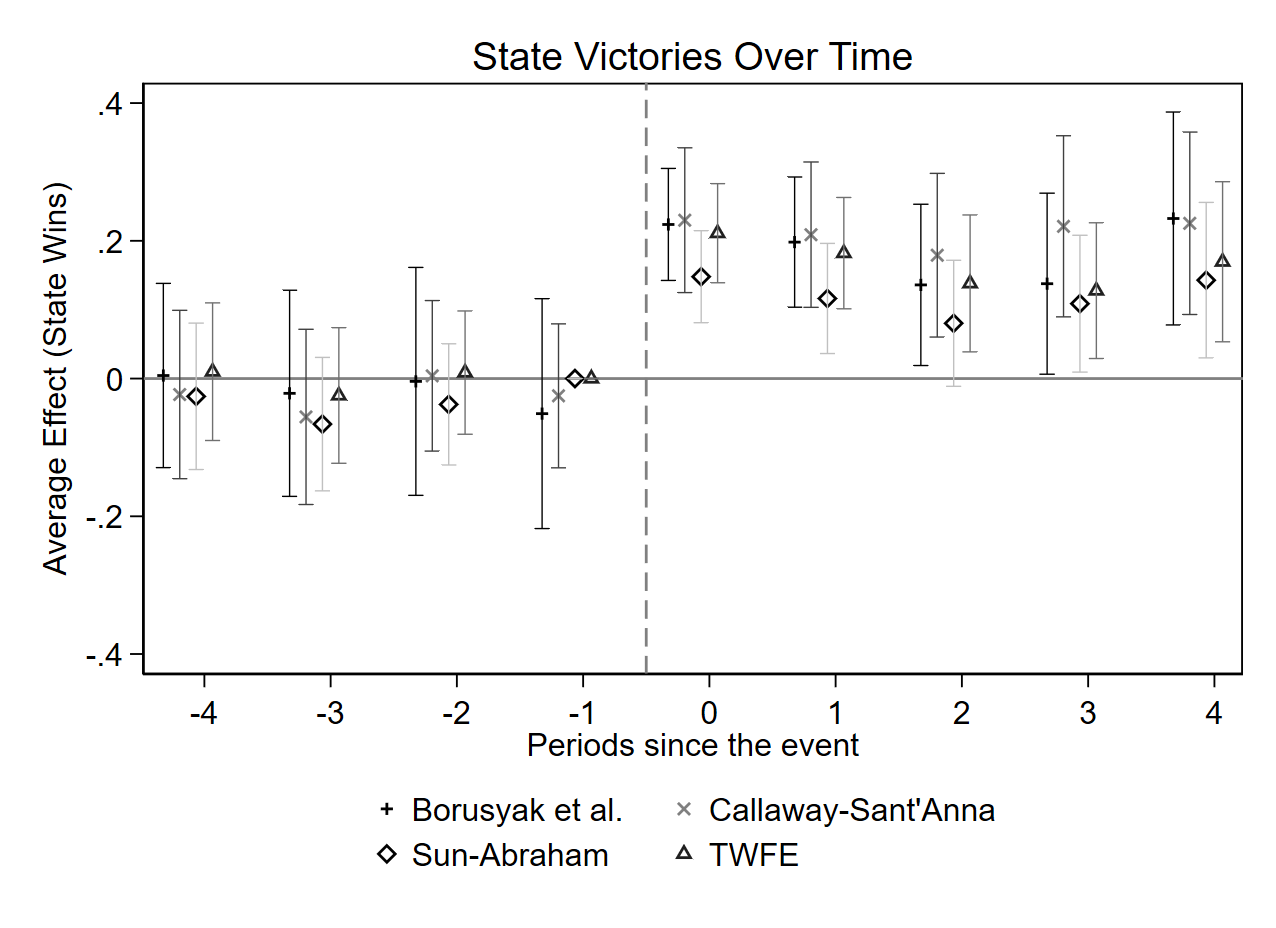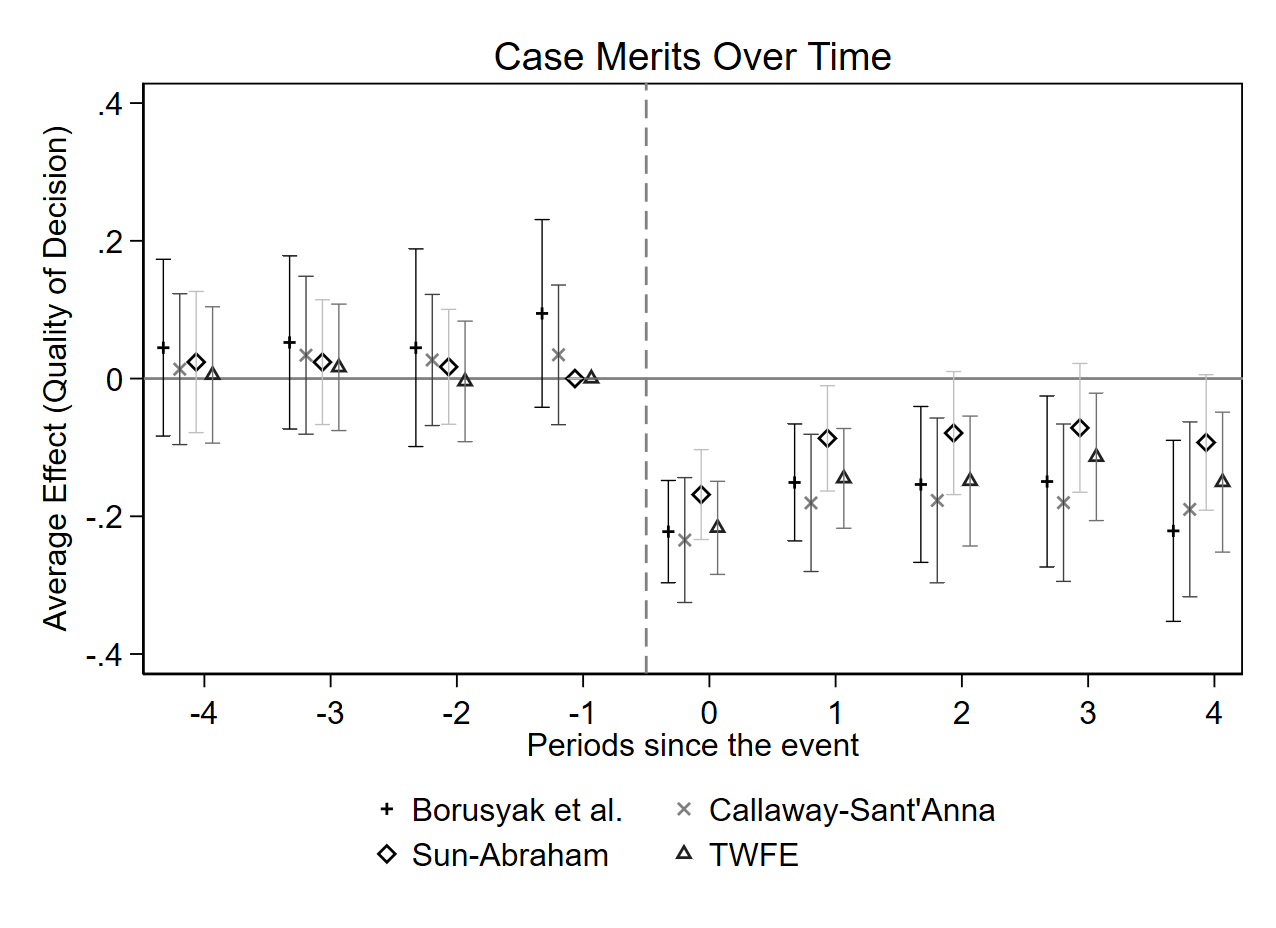
Government real estate allocations to judges tilt the scales of justice in Pakistan's courtrooms
The judiciary's role as a counterbalance to government authority is a foundational concept of governance, dating back to Enlightenment thought (Montesquieu 1748, Madison et al.1788). Yet, recent evidence suggests that judiciaries across the globe, even in established democracies, are relinquishing this critical function, potentially succumbing to government influence (World Justice Project 2023). This erosion of judicial independence can have dire consequences, stifling political accountability, hindering economic development, and paving the way for authoritarian and populist regimes (Persson et al. 1997, Djankov et al. 2003, Glaeser and Goldin 2006, Liu et al. 2022; Lambais and Sigstad, 2023). It raises two essential inquiries: How does the government subvert judicial independence, and what mechanisms facilitate this subversion?
Why study the independence of the judiciary?
Judicial independence is a defining feature that sets it apart from the bureaucracy and legislature, which are both accountable to the executive to varying degrees. The judiciary's autonomous operation is essential, providing a crucial check on the powers of other government branches and safeguarding individual rights and the rule of law. Favouritism within the judiciary, therefore, has profound implications, as it compromises the judiciary's role as the guardian of citizen rights and diminishes its capacity to shield citizens from the unjust expropriation of their rights and property. Such erosion of judicial authority disproportionately affects the most vulnerable in society, undermining trust in the legal system and jeopardising the very foundation of democratic governance. Meanwhile, the autonomy of the judiciary is pivotal in guaranteeing that justice is accessible to all, particularly the impoverished, who are frequently the most exposed to power abuses and possess scant resources to uphold their rights.
The methodology
Our analysis employs a generalised difference-in-differences research design, leveraging the staggered distribution of real estate to judges as a means of identifying variation. Our research design allows us to address several empirical issues that could otherwise hinder our ability to interpret the results as causal. To begin with, we can account for the possibility that the outcomes are influenced by time-invariant differences in pro-government rulings by judges. Some judges may be more likely to receive real estate based on their fixed characteristics such as their gender or the law school they went to, but by incorporating judge-fixed effects, we can rule out such concerns. Furthermore, we can dismiss the notion that our results are driven by court decisions that commonly evolve across judges in different periods. Certain political shocks, such as national elections, may have a specific effect on the rulings of all judges - by incorporating year-fixed effects, we can account for these potential influences. Finally, the inclusion of court-by-year fixed effects mitigates the influence of variable caseloads and court congestion over time, ensuring tighter treatment-control comparisons. This approach, coupled with an examination of the timing of real estate allocations to judges, facilitates the comparison of judicial decisions pre- and post-allocation, thereby accounting for a range of latent, judge-specific variables.
Houses for rulings: A reciprocal exchange
Our study (Mehmood and Ali 2023) examines a novel dataset that merges judicial decisions from Pakistan's High Courts with Public Accounts Committee records on real estate allocations to judges from 1986 to 2019. This investigation reveals a reciprocal exchange between the judiciary and the government, marked by the allotment of premium real estate to judges and a reciprocal rise in pro-government rulings by judges. We uncover this quid pro quo between the Pakistani government and the judiciary, where judges receiving government-allotted housing are more likely to issue pro-government rulings—a 50% increase from the baseline (Figure 1). A panel of attorneys assessing these rulings found a 40% drop in decisions based on case merits post-allocation, raising concerns about the integrity of judicial decision-making (Figure 2).
Figure 1: Time-varying impact of house allocation on pro-government rulings

Source: Mehmood and Ali (2023). Notes: This figure overlays the event-study plots constructed using four different estimators: a dynamic version of the TWFE model, (2), estimated using OLS (with triangle markers); Sun and Abraham (2021) (with diamond markers); Callaway and Sant'Anna (2021) (with cross markers) and Borusyak et al. (2021) (with plus markers). The bars represent 95% confidence intervals with SEs clustered at the judge level.
Figure 2: Time-varying impact of house allocation on decisions on legal merits

Source: Mehmood and Ali (2023). Notes: This figure overlays the event-study plots constructed using four different estimators: a dynamic version of the TWFE model, (2), estimated using OLS (with triangle markers); Sun and Abraham (2021) (with diamond markers); Callaway and Sant'Anna (2021) (with cross markers) and Borusyak et al. (2021) (with plus markers). The bars represent 95% confidence intervals with SEs clustered at the judge level.
The economic trade-off
This reciprocal favouritism carries implications for the macroeconomic landscape. The government's real estate allocations to judges, costing 0.03% of GDP, are offset by gains from land expropriation by the government through the judiciary, amounting to 0.2% of GDP annually. This exchange underscores a worrying trend of short-term fiscal costs being eclipsed by long-term power consolidation.
Conclusion
Our findings are a sobering reminder of the fragility of democratic institutions, affirming the association between governmental inducements to judges and an escalation in decisions that favour the state, which concurrently erodes the quality of judicial verdicts. These findings serve as a stark reminder that reforms aimed at fostering an independent judiciary (Chemin 2021, Mehmood 2022) may be undermined by entrenched norms of gift-exchange. The judiciary, tasked with upholding justice, is likely to fall prey to the allure of government favours. To counteract this practice, it is imperative to establish norms and legislation –institutions–echoing the sentiments of Justice Athar Minallah, a serving Supreme Court Justice of Pakistan. In a recent ruling addressing the issue of real estate allocation to judges, his dissent read:
"When plunder becomes a way of life in a society, over the course of time they create for themselves a legal system that authorizes it and a moral code that glorifies it."
References
Acemoglu, D, J A Robinson, and R Torvik (2013), "Why do voters dismantle checks and balances?" Review of Economic Studies, vol. 80(3): 845–75.
Djankov, S, R La Porta, F Lopez-de-Silanes, and A Shleifer (2003), "Courts," The Quarterly Journal of Economics, 118(2): 453-517.
Chemin, M (2021), "Can judiciaries constrain executive power? Evidence from judicial reforms," Journal of Public Economics, 199: 104428.
Glaeser, E L and C Goldin, Eds. (2006), "Corruption and Reform: Introduction," in Corruption and Reform: Lessons from America's Economic History, University of Chicago Press, pp. 3-22.
Lambais, G., & Sigstad, H. (2023). Judicial subversion: The effects of political power on court outcomes. Journal of Public Economics, 217, 104788.
Liu, E, Y Lu, W Peng, and S Wang (2022), "Judicial independence, local protectionism, and economic integration: Evidence from China," National Bureau of Economic Research, No. w30432.
Madison, J, A Hamilton, and J Jay (1788), The Federalist Papers.
Mehmood, S (2022), "The impact of Presidential appointment of judges: Montesquieu or the Federalists?" American Economic Journal: Applied Economics, 14(4): 411–445.
Mehmood, S and B Ali (2023), "Judicial Capture," The Economic Journal, uead106.
Mian, A, A Sufi, and F Trebbi (2010), "The Political Economy of the US Mortgage Default Crisis," The American Economic Review, 100(5): 1967-1998.
Montesquieu, C (1748), De l'esprit des lois [The Spirit of the Laws].
Persson, T, G Roland, and G Tabellini (1997), "Separation of Powers and Political Accountability," The Quarterly Journal of Economics, 112(4): 1163-1202.
World Justice Project (2023), "WJP Rule of Law Index 2023," World Justice Project. Available at: https://worldjusticeproject.org/rule-of-law-index/downloads/WJPIndex2023.pdf.


